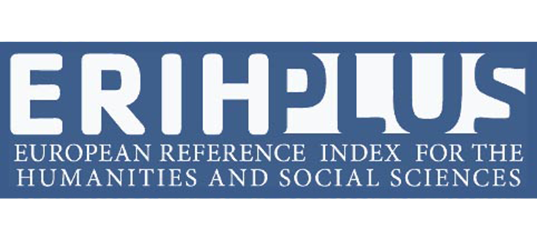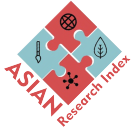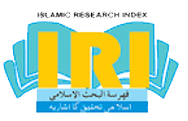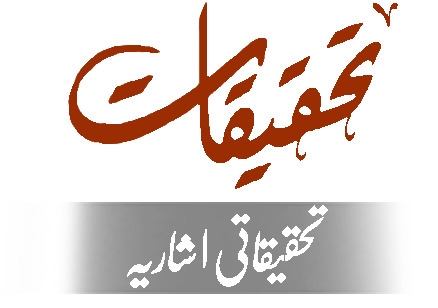FOR REVIEWERS
ETHICAL GUIDELINES
FOR REVIEWERS [EXPLANATION]:
The peer reviewer is responsible for critically reading and evaluating a manuscript in their specialty field, and then providing respectful, constructive, and honest feedback to authors about their submission. It is appropriate for the Peer Reviewer to discuss the strengths and weaknesses of the article, ways to improve the strength and quality of the work and evaluate the relevance and originality of the manuscript. Review of the manuscript by reviewers is not only an essential component of formal scholarly engagement but is also a fundamental step in the publication process as it aids the Editor in the editorial decision-making. It also allows author(s) improve their manuscript through editorial communications. Scholars accepting to review a research paper have an ethical responsibility to complete this assignment professionally. The quality, credibility, and reputation of a journal also depend on the peer-review process. The peer-review process depends on the trust and demands that a reviewer is supposed to fulfill ethically. These professionals are the momentum arm of the review process, but they may be performing this job without any formal training. As a consequence, they may be (especially young professionals) unaware of their ethical obligations. The Higher Education Commission (HEC), Pakistan wants to list down 'Ethical Guidelines for Reviewers' so that all reviewers provide their valuable services in a standardized manner.
CONDUCTING A REVIEW
INITIAL STEPS:
Read the manuscript, supplementary data files, and ancillary material thoroughly (e.g., reviewer instructions, required ethics and policy statements), get back to the journal if anything is not clear and request any missing or incomplete items you need. Do not contact the authors directly without the permission of the journal. It is important to understand the scope of the review before commencing (i.e., is a review of raw data expected?).
CONFIDENTIALITY:
- Reviewers should consider the research paper as a confidential document and must not discuss its content on any platform except in cases where professional advice is being sought with the authorization of the Editor, and
- Reviewers are professionally and ethically bound not to disclose the details of any research paper prior to its publication without the prior approval of the Editor.
Respect the confidentiality of the peer-review process and refrain from using information obtained during the peer review process for your own or another’s advantage, or to disadvantage or discredit others. Do not involve anyone else in the review of a manuscript (including early career researchers you are mentoring), without first obtaining permission from the journal. The names of any individuals who have helped with the review should be included so that they are associated with the manuscript in the journal’s records and can also receive due recognition for their efforts.
FAVORITISM AND COMPETING INTERESTS:
It is important to remain unbiased by considerations related to the nationality, religious or political beliefs, gender or other characteristics of the authors, origins of a manuscript or by commercial considerations. If you discover a competing interest that might prevent you from providing a fair and unbiased review, notify the journal and seek advice. While waiting for a response, refrain from looking at the manuscript and associated material in case the request to review is rescinded. Similarly, notify the journal as soon as possible if you find you do not have the necessary expertise to assess the relevant aspects of a manuscript so as not to unduly delay the review process. In the case of double-blind review, if you suspect the identity of the author(s) notify the journal if this knowledge raises any potential competing or conflict of interest.
SUSPICION OF ETHICS VIOLATIONS: CONSIDERATIONS:
- If the reviewer suspects that the research paper is almost the same as someone else's work, s/he will ethically inform the Editor and provide its citation as a reference.
- If the reviewer suspects that results in the research paper to be untrue/unrealistic/fake, s/he will share it with the Editor,
- If there has been an indication of violating ethical norms in the treatment of human beings (e.g. children, female, poor people, disabled, elderly, etc), then this should be identified to the Editor, and
If the research paper is based on any previous research study or is a replica of an earlier work or the work is plagiarized for e.g. the author has not acknowledged/referenced others' work appropriately, then this should
If you come across any irregularities with respect to research and publication ethics do let the journal know. For example, you may have concerns that misconduct occurred during either the research or the writing and submission of the manuscript, or you may notice the substantial similarity between the manuscript and a concurrent submission to another journal or a published article. In the case of these or any other ethical concerns, contact the editor directly and do not attempt to investigate on your own. It is appropriate to cooperate, in confidence, with the journal, but not to personally investigate further unless the journal asks for additional information or advice.
TRANSFERABILITY OF PEER REVIEW:
Publishers may have policies related to transferring peer reviews to other journals in the publisher’s portfolio (sometimes referred to as portable or cascading peer review). Reviewers may be asked to give permission for the transfer of their reviews if that is journal policy. If a manuscript is rejected from one journal and submitted to another, and you are asked to review that same manuscript, you should be prepared to review the manuscript afresh as it may have changed between the two submissions and the journal’s criteria for evaluation and acceptance may be different. In the interests of transparency and efficiency, it may be appropriate to provide your original review for the new journal (with permission to do so from the original journal), explaining that you had reviewed the submission previously and noting any changes.
SUITABILITY AND RAPIDITY:
The Reviewers should:
- Inform the Editor, if they do not have the subject expertise required to carry out the review and s/he should inform the Editor immediately after receiving a request.
- Be responsible to act promptly and submit the review report on time.
- Immediately inform the Editor of any possible delays and suggest another date of submission for a review report, and
- Not unnecessarily delay the review process, either by prolonged delay in submission of their review or by requesting unnecessary additional data/information from the Editor or author(s).
STANDARDS OF OBJECTIVITY:
- The reviews should be objectively carried out with a consideration of high academic, scholarly, and scientific standards.
- All judgments should be meticulously established and maintained in order to ensure the full comprehension of the reviewer's comments by the editors and the author(s).
- Both reviewers and author(s) in rebuttal should avoid unsupported assertions,
- The reviewer may justifiably criticize a manuscript but it would be inappropriate to resort to personal criticism on the author(s), and
- The reviewers should ensure that their decision is purely based on the quality of the research paper and not influenced, either positively or negatively, by any personal, financial, or other conflicting considerations or by intellectual bias.
DISCLOSURE AND CONFLICT OF INTEREST:
- A reviewer should not, for the purpose of his/her own research, use unpublished material disclosed in a submitted manuscript, without the approval of the Editor.
- The data included in the research paper is confidential and the reviewer shall not be allowed to use if for his/her personal study,
- A reviewer must declare any potentially conflicting interests (e.g. personal, financial, intellectual, professional, political, or religious). In such a situation, s/he will be required to follow the journal's policies.
- A reviewer should be honest enough to declare conflicts of interest, if, the research paper under review is the same as his/her presently conducted the study.
- If the reviewer feels unqualified to separate his/her bias, s/he should immediately return the manuscript to the Editor without review, and justify to him/her about the situation.
- Without the prior approval of the Editor.
- then this should be brought in the Editor's knowledge.
CONTENT QUALITY AND ORIGINALITY:
- Is the article sufficiently novel and interesting to warrant publication?
- Does the article adhere to the journal's standards?
- Is the research question an important one?
- In order to determine its originality and appropriateness for the journal, it might be helpful to think of the research in terms of what percentile it is in?
- Is it in the top 25% of papers in this field?
You might wish to do a quick literature search using tools such as Scopus to see if there are any reviews of the area. If the research has been covered previously, pass on references of those works to the editor. As for as evaluating originality, the reviewers should consider the following elements:
■ Does the research paper add to existing knowledge?
■ Are the research questions and/or hypotheses in line with the objective of the research work?
ORGANIZATION AND CLARITY:
Title: Does it clearly describe the article?
Abstract: Does it reflect the content of the article?
Introduction: Does it describe what the author hoped to achieve accurately, and clearly state the problem being investigated? Normally, the introduction should summarize relevant research to provide context and explain what other authors' findings, if any, are being challenged or extended. It should describe the experiment, the hypothesis, and the general experimental design or method.
Method: Does the author accurately explain how the data was collected? Is the design suitable for answering the question posed? Is there sufficient information present for you to replicate the research? Does the article identify the procedures followed? Are these ordered in a meaningful way? If the methods are new, are they explained in detail? Was the sampling appropriate? Have the equipment and materials been adequately described? Does the article make it clear what type of data was recorded; has the author been precise in describing measurements?
Results: This is where the author/s should explain in words what he/she discovered in the research. It should be clearly laid out and in a logical sequence. You will need to consider if the appropriate analysis has been conducted. Are the statistics correct? If you are not comfortable with statistics, please advise the editor when you submit your report. Interpretation of results should not be included in this section.
Conclusion/Discussion: Are the claims in this section supported by the results, do they seem reasonable? Have the authors indicated how the results relate to expectations and to earlier research? Does the article support or contradict previous theories? Does the conclusion explain how the research has moved the body of scientific knowledge forward?
PREPARING A REPORT
FORMAT:
Follow the journal’s instructions for writing and posting the review. If a particular format or scoring rubric is required, use the tools supplied by the journal. Be objective and constructive in your review, providing feedback that will help the authors to improve their manuscript. For example, be specific in your critique, and provide supporting evidence with appropriate references to substantiate general statements, to help editors in their evaluation. Be professional and refrain from being hostile or inflammatory and from making libelous or derogatory personal comments or unfounded accusations.
APPROPRIATE FEEDBACK:
Bear in mind that the editor requires a fair, honest, and unbiased assessment of the strengths and weaknesses of the manuscript. Most journals allow reviewers to provide confidential comments to the editor as well as comments to be read by the authors. The journal may also ask for a recommendation to accept/revise/reject; any recommendation should be congruent with the comments provided in the review. If you have not reviewed the whole manuscript, do indicate which aspects of the manuscript you have assessed. Ensure your comments and recommendations for the editor are consistent with your report for the authors; most feedback should be put in the report that the authors will see. Confidential comments to the editor should not be a place for denigration or false accusation, done in the knowledge that the authors will not see your comments.
LANGUAGE AND STYLE:
Remember it is the authors’ paper, so do not attempt to rewrite it to your own preferred style if it is basically sound and clear; suggestions for changes that improve clarity are, however, important. In addition, be aware of the sensitivities surrounding language issues that are due to the authors writing in a language that is not their first or most proficient language, and phrase the feedback appropriately and with due respect.
SUGGESTIONS FOR FURTHER WORK:
It is the job of the peer reviewer to comment on the quality and rigor of the work they receive. If the work is not clear because of missing analyses, the reviewer should comment and explain what additional analyses would clarify the work submitted. It is not the job of the reviewer to extend the work beyond its current scope. Be clear which (if any) suggested additional investigations are essential to support claims made in the manuscript under consideration and which will just strengthen or extend the work.
ACCOUNTABILITY:
Prepare the report by yourself, unless you have permission from the journal to involve another person. Refrain from making unfair negative comments or including unjustified criticisms of any competitors’ work that is mentioned in the manuscript. Refrain from suggesting that authors include citations to your (or an associate’s) work merely to increase citation counts or to enhance the visibility of your or your associate’s work; suggestions must be based on valid academic or technological reasons. Do not intentionally prolong the review process, either by delaying the submission of your review or by requesting unnecessary additional information from the journal or author.














